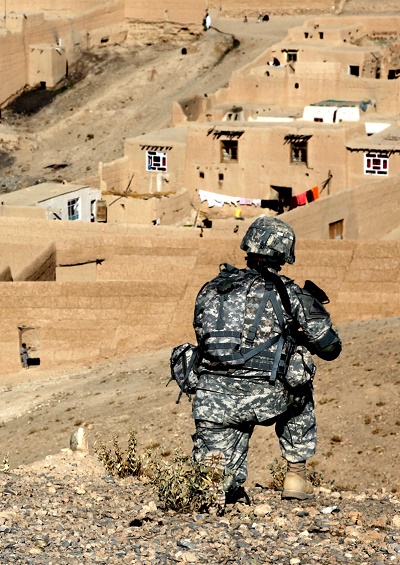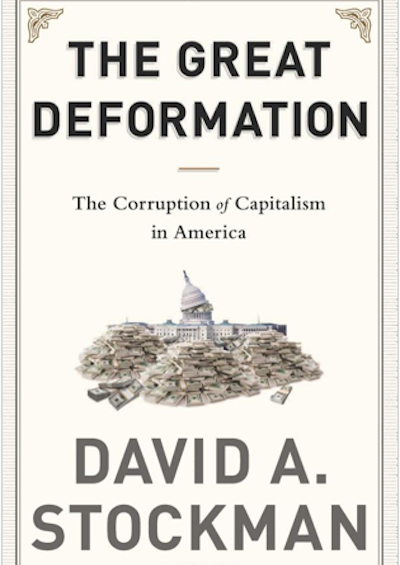Thank you, Mr. Putin!
Has the Czar single-handedly rescued our “American Way of War”?
April 29, 2014

Why does Russian President Vladimir Putin — a man we Americans love to hate — deserve our thanks? Simple. His recent actions have revalidated the yearnings of U.S. Army boosters everywhere: They want “Big Army” back, which those of us consider the bedrock of the American “ethos.”.
Just months ago the very idea of keeping “Big Army” was dead and gone. This wasn’t just about the fact that the United States has not fought a tank battle in 25 years. Worse, the Army’s expeditionary efforts — in Iraq and Afghanistan — had met an inglorious end.
The killing move for the U.S. Army came with the pivot (or was it a pirouette?) to Asia. This “strategic” shift left the Army cold-shouldered and shunned.
Catcalls could be heard, sharp and cold: “The Lima line, shut it down! Tanks are so George S. Patton.”
Putin to the rescue!
But now that modern, Big Rooskie armored formations mass on Ukraine’s border, the military soul of America collectively feels the sudden, fragrant promise of springtime restoration. Big Army is coming back strong. So there is not only a comeback for neo-imperial Russia, but also, just as certainly, for the United States Army.
C.J. Chivers’ article in the New York Times — fingering the Red Army comeback — was the rallying cry that troopers everywhere have yearned for. Better yet, his article is no courtier-commentary. Rather it is the best straight, hardheaded, real reportage you can find.
What Chivers witnessed and described is real: A new Soviet tank army, like a phoenix rising. It is the first real badass army Americans have faced (in prospect) since the times of the Fulda Gap and the fabled Group of Soviet Forces, Germany.
Better yet from a self-interested perspective, this new Russian army is perfectly packaged to prime an American Army comeback.
Let me describe what this really means in purely military terms. Russia is offering the United States a yardstick for a clear-cut adversary not seen since the Cold War’s end.
This comes in the form of a truly competitive adversary tank army delivered at about 120-150,000 soldiers. This, in contrast to ragtag insurgents we have tracked down and killed for twelve years in utter frustration, represents a beautiful, and real, military challenge. This is just the very gauntlet thrown down that our U.S. Army so earnestly, so desperately, wants to meet.
Why? Because as a military-loving nation, we Americans can now imagine, once again, a competent, albeit far-away army we might actually fight.
If all goes well, this single Russian Army demonstration around Ukraine can forever enshrine a U.S. Army total force of 415,000-550,000 soldiers — more likely on the higher side.
How does one get to a U.S. Army total force close to 550,000? Just do a simple back-of-the-envelope exercise. For every 1,000 soldiers the United States deploy overseas, we need to have 2,000 back home. Call it a minimum three-to-one “expeditionary rotation.” Then add 15% as necessary overhead, for other deployments.
This is Putin’s gift: He offers America the thing so many Americans most wanted — a strategic reason to go back to Big Army. No more “just BCT” (brigade combat team) scenarios — the prospect now is to face a whole army!
Enshrining the American way of war
Even more important, a modern, gung-ho Russian tank army on the move in Eurasia — maybe anywhere in Eurasia — has a bracing bottom-line message for Americans and their preferred way of war.
Why would we as Americans so ringingly endorse the return of the Big Army? Because the essence of Big Army — 70-ton tanks and lots of self-propelled guns and gobs of other tracked vehicles and armored helos — is very simply what this nation does best. Russell Weigley called it what it is: the American Way of War.
Twelve years of dispiriting combat in Muslim lands shows the pernicious ways in which battles we Americans don’t really like — largely about fighting identity — have succeeded only in achieving its logical opposite — depleting American identity.
The American Way of War is decidedly not rooted in a counterinsurgency tradition, let alone a counterinsurgency ethos. We have forces — Special Forces — to do such things. They are an anointed band of gods who can do Petite Guerre.
But for the big boom-things that we prefer as a nation, we need Big Army doing Big War. That is what is stitched deep into the DNA of national identity. If this is the war we do best, then we should go with it.
After all, we know for certain now — after Mogadishu and Afghanistan and Iraq — that this kind of “little” war, with close-in combat, is not where we shine. Mr. Putin has shown us the way out — how to shine again.
Primed and ready for our deepest TV memories
So we should be properly grateful as a nation to Mr. Putin. The U.S. Army — and the nation — can now renew and restore our American Way of War.
Big Army — done awkwardly like we did it in Afghanistan and Iraq — need no longer pretend to be something it is not. If all goes well, the U.S. Army can finally lay to rest pesky missions labeled “irregular” and “unconventional.” Those are the places in war where we Americans are least comfortable — and least successful.
Instead we should proclaim proudly that we are back, and the world should get used to it. This is what we do. This is who we are. Big Army: It’s what’s for dinner.
Russian “gifting” restores Big Army, even if — and Cold War experience would say, especially if — American forces never see another tank battle. What a bonus to our army, and a TV nation hooked on memories of old glories.
Does not Putin’s most generous assist thus deserve our nation’s collective thanks?
Takeaways
The Ukraine crisis is not only a comeback for neo-imperial Russia, but also for the U.S. Army.
Russia is offering the United States a yardstick for a clear-cut adversary not seen since the Cold War's end.
We Americans can now imagine, once again, a competent, albeit far-away army we might actually fight.
Getting back to do mental games with the Soviets is a real bonus to a TV nation hooked on memories of old glories.

